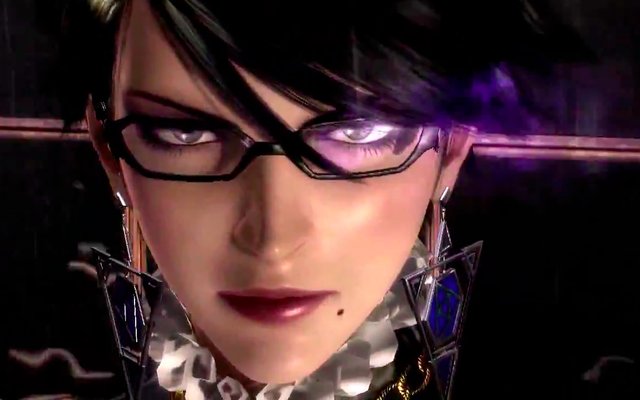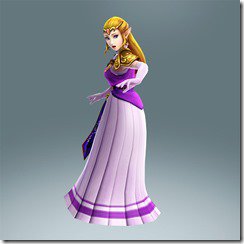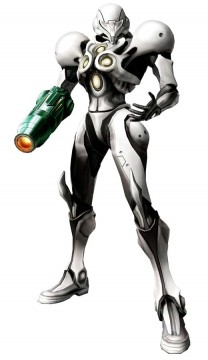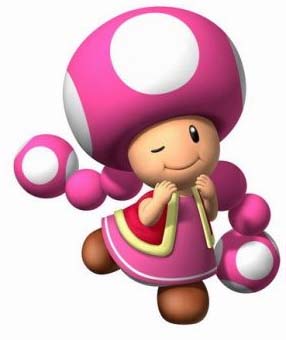
Bayonetta is all about over-the-top gameplay, frenetic action, and a heaping dose of sex appeal.
Sex appeal, of course, being an integral aspect of the eponymous heroine’s personality ever since her debut on PlayStation 3 and Xbox 360. Bayonetta doesn’t shy away from being provocative, doesn’t really care if her behavior is politically correct. Which is pretty bold, considering her creator, Platinum Games’ Hideki Kamiya, is fully aware that she exists in an industry not known for female leads. Worse still, an industry under pressure for continuing to portray women unrealistically more often than not when developers bother at all to include one in their games. Yet, despite making the decision to release her into what could fairly be described as a hostile environment for a sexed-up female lead character, Bayonetta’s story was one of success, not failure.
Part of Bayonetta connecting to both men and women gamers can arguably be traced to how Platinum Games characterizes her. Yes, Bayonetta plays to certain conventions of vixens and bombshells, but that’s only a part of who she is. There’s something genuine about her that doesn’t make her feel cheap or like simple eye candy. Frankly, the way that Bayonetta toys with expectations by simultaneously clinging to and breaking stereotypes is yet another reason to like her. I’m not suggesting she’s universally embraced, because Bayonetta certainly has her detractors, but ultimately characters like her are what the industry needs more of.
There’s a big difference between having a character with sex appeal and having a character who’s nothing but cleavage and jiggle physics. For far too long now, players have been conditioned to accept the idea of a male protagonist clad in armor, joined by a female partner (playable if she’s lucky) in nothing more than a bra and loincloth. Never mind that they’re both off to face the same twenty foot tall dragon! For straight males, the primal appeal of seeing women in bikinis running around with katanas and machine guns is obvious, but that doesn’t mean it’s something that needs to be portrayed incessantly.

This problem isn’t limited to wardrobe problems, of course. If a woman in a game isn’t scantily clad, she’s at least well-endowed, or extremely attractive. At this point in the industry, if a female lead isn’t partially unclothed, she will bare minimum be gorgeous. There’s plenty of room for guys like Trevor in Grand Theft Auto 5, but there haven’t been too many homely women in gaming. If players can accept average and even unattractive male characters, women should be able to grace the screen and be unabashedly mediocre. That’s not even getting into the issue of minority representation in video games, but that’s its own problem across both genders.
Now, before I carry on, I would like to point something else out that ties into the idea of having normal women in games. Should there be more of The Last of Us‘s Ellie and The Walking Dead’s Clementine in gaming? Absolutely. But that doesn’t mean it’s okay to slam any and every female character who isn’t run of the mill. There’s a tendency to degrade and mock women who are thin (not even necessarily attractive) these days, with people saying things like “go eat” or “she must be starving herself!” with no regard for the person those comments are being aimed at. It’s long been known that there are many women who practically starve themselves to be thin, but there are also a lot of women who can eat a bag of Funyuns and lose weight– my sister is one of them! What I’m getting at is, if the industry wants to be realistic, all types of women should be in games, not just thin, not just big, not just in the middle– give players all of it.
That all being said, video game makers have made strides, even if they’re small and imperfect. Bayonetta, Zelda, Lara Croft of Tomb Raider, Samus of Metroid, Jade of Beyond Good & Evil, and many more have set the standard for how to level the playing field. Hyrule Warriors, which just recently came out, features a slew of strong women. It’s not enough, though. As awesome as all those ladies are, there’s still a need to increase both the volume and relevance of female characters, especially in AAA titles. The blockbuster series in video games are overwhelmingly dominated by men. Call of Duty, Assassin’s Creed, Grand Theft Auto, Gears of War– the list goes on and on. Some of those games have made efforts to either introduce female avatars or characters, but let’s not sugarcoat, it’s been predominantly bare-minimum appeasement thus far and little else.

Let’s take a step back though and put things in perspective even further. In fairness to video game developers, the demographics of who are buying their products can’t be ignored. The numbers are shifting, but at this point men are still the bread and butter of the gaming industry. As such, it’s hard for a company like Rockstar to rationalize that making a woman the star of Grand Theft Auto 6, for example, would be conducive to blockbuster sales. The sad truth of the matter is that sales of past games starring women lend credence to developer apprehension. Beyond Good & Evil, for instance, had every reason in the world to be a hit, but as engaging as its hero Jade was, the male-dominated audience didn’t take to her. Equality and representational issues aside, it’s hard to justify to a developer the merits of utilizing female leads when historically too few play the games that have them.
Still, the low sales numbers for women-lead games seems more a thing of the past than the present. Tomb Raider, Metroid, and Bayonetta have all managed to do well in spite of not touting males, and the introduction of female soldiers in Call of Duty and significant partner characters like Ellie in The Last of Us have only made old and new series stronger. When developers try to hide behind this farcical notion that gamers just aren’t open to strong, female characters, it’s hard to take them seriously when there have been so many successes already. With mobile and casual gaming opening the doors to non-traditional gamers, women included, now is the time to throw caution to the wind and show everyone that gaming is more than guns and boobs.
There’s one last thing that has been stuck in my craw, though, that really needs to be addressed: Gamergate. For the uninitiated, Gamergate (as it’s been dubbed) was a social media fiasco in which a female game developer named Zoe Quinn was the target of a litany of posts from a disgruntled ex-boyfriend who accused her of having an affair with a Kotaku writer, which resulted in a game she created getting unfairly positive media coverage. Juvenile as the initial attack was, what ensued was a barbaric barrage of rape and death threats aimed at Quinn from so-called gamers on various social media sites. Despicable, unconscionable, abhorrent, but here’s the thing– that incident in no way represented me as a gamer or human being.

Fanatical fringe should never be used to represent the majority of a particular group of people. Jihadists don’t represent all Muslims, after all, so why droves of imbeciles claiming to be gamers threatening to rape a woman should represent everyone who plays video games is beyond me. I take offense when I’m perusing the Internet or magazines and see journalists clustering all of us together as a gaggle of misogynists and immature children when reporting on incidents like Gamergate or decrying the industry in general. I have no qualms with wanting to see game makers do better by people and become more inclusive, more approachable. That doesn’t mean, though, that it’s okay for anyone with journalist credentials to make sweeping generalizations about the video game industry and its fans. If millions of Americans can watch shows like Game of Thrones or Boardwalk Empire, shows rife with female nudity and violence, and not be subjected to claims of misogyny and sexism, there should be no double-standard for gaming and gamers.
There needs to be more Bayonettas and Ellies. Clementine shouldn’t be an exception. It’s long past due for gaming to get with the times and embrace its broadening fan base. But it’s also time for pundits to stop pointing the finger at all gamers and declaring us children and sexist. The industry can do better, and some of its fans can do better, too. I’ve heard my fair share of fools online spraying hate into their headsets, and they sicken me. As I said, though, people like the Call of Duty homophobe don’t represent everyone with a controller in hand. Early word on Bayonetta 2 has been extremely positive. If you’re old enough to snag a copy, think about buying a good game that walks a different path. If the industry is going to change, we have to make it happen– whether man or woman.




 ShareThis
ShareThis







Near the end of one of the Assassin’s Creed games, there was a short segment played as a woman, and I was sure the next game would feature her as a protagonist. Sadly, that wasn’t the case, and there never has been a female lead in AC. Huge wasted opportunity, in my opinion. (And now, if there ever is, I’ll have to buy some annoying gimped PC pretending to be a console in order to play it…)
This is a great article, and I couldn’t agree more. Many games are a power trip of sorts, but there are a great many (and greatly diverse) kinds of power. Chell’s wit and Jade’s resolve are as satisfying in gameplay as Link’s courage or Snake’s subterfuge. Master Chief and Kratos can only wish they had Samus’s adaptiveness or Bayonetta’s command.